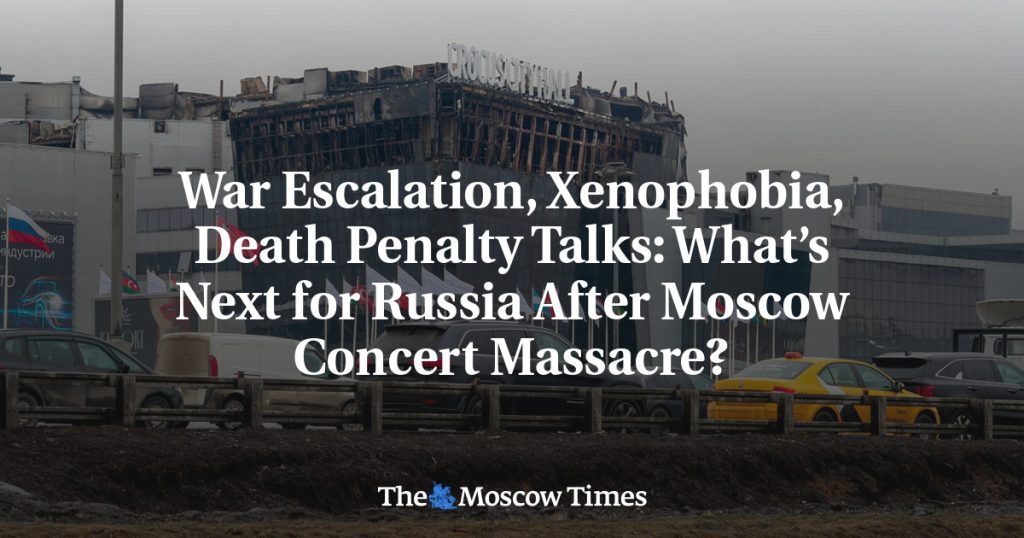The March 22 attack on a concert venue near Moscow has far-reaching implications for Russian society, with experts warning of potential escalation in tensions, increased repression, and rise in anti-migrant violence and xenophobia. The attack, claimed by IS jihadists but blamed by Russian authorities on Kyiv and its Western allies, could worsen relations with the West or lead to an escalation in the ongoing war in Ukraine. Moscow received a warning from American authorities about a possible terrorist attack, leading to accusations against Ukraine and echoes of anti-West sentiment among some Russians. The Defense Ministry reported an increase in citizens signing up to fight in Ukraine in response to the attack.
In the aftermath of the attack, there was a show of unity and strength among Russian citizens, with hundreds donating blood for the wounded and calling for unity in the country’s response to the enemy, although the identity of the enemy was not specified. However, the treatment of the suspects involved in the attack raised concerns over the normalization of torture in Russian society. Human rights activists condemned the brutality faced by the suspects and warned that using violence against suspects sets a dangerous precedent for the treatment of all individuals involved in criminal investigations.
The attack reignited the debate on capital punishment in Russia, with some public figures calling for the execution of the suspects and those involved in the attack. While some officials supported this stance, others urged caution in making such decisions at a time of heightened emotions. The Kremlin opted not to participate in discussions on lifting the moratorium on the death penalty, highlighting the complexity and sensitive nature of the issue. Xenophobia and anti-immigrant sentiments rose following the attack, particularly against Central Asian migrants, leading to widespread raids and deportations in migrant communities across Russia.
The Russian government considered implementing stricter measures on migrants, such as limiting temporary stays and requiring biometric data upon entry. The proposed legislation aimed at overseeing interethnic and migration policies signaled a potential crackdown on foreign citizens in Russia. The attack at Crocus City Hall not only had immediate impacts on Russian society but also raised concerns about the broader implications for the country’s approach to security, terrorism, and immigration policies. The incident highlighted the complex challenges Russia faces in addressing internal conflicts and security threats while navigating diplomatic relations with the West and ongoing conflicts in neighboring regions like Ukraine.


